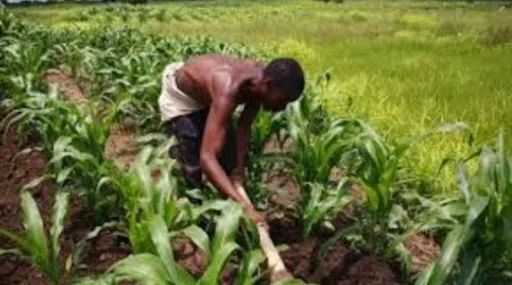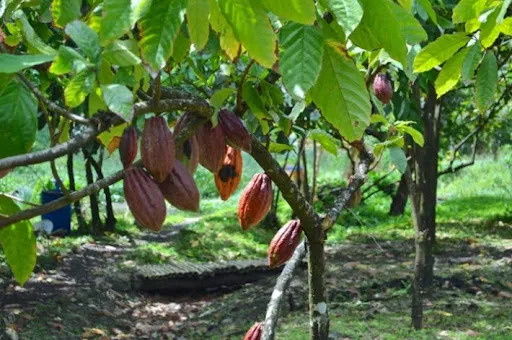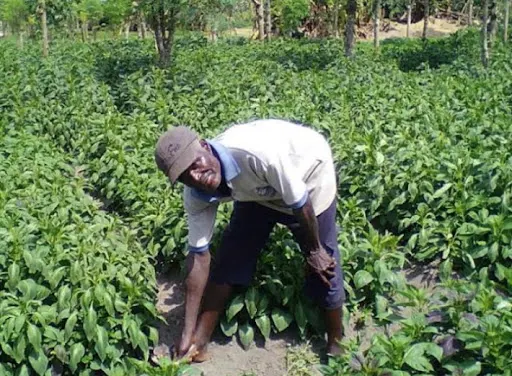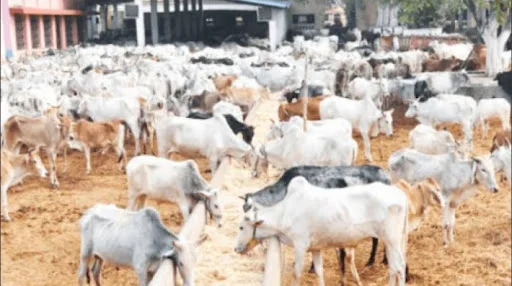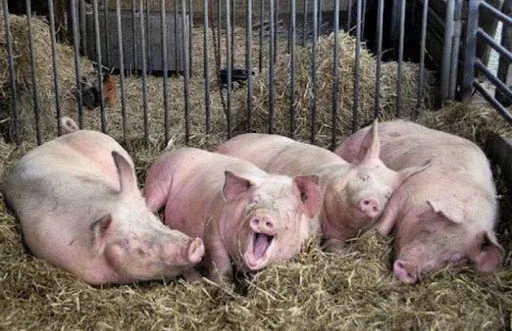Throwback Times present key ways to surviving bad economy under Bola Ahmed Tinubu's regime: Major way is to be adaptable and resourceful. Many people may experience financial difficulties during a bad economy, so it is important to be prepared and have a plan. Here are some strategies to consider:
1. Diversify your income sources: consider alternative sources of income, such as freelance work or online businesses.
2. Build an emergency fund: this can help to cushion the blow of any sudden financial setbacks.
3. Invest in your skills: take courses, learn new skills, and stay up to date with industry trends.
4. Cut back on expenses: review your budget and find ways to reduce spending. Consider downsizing your home or lifestyle, or cutting out unnecessary expenses.
5. Build relationships: connect with friends, family, and your community for support. These relationships can be invaluable in tough times.
6. Stay positive and motivated: it can be easy to get discouraged in a bad economy, but staying positive and focused on your goals can help you to weather the storm.
7. Go agriculture: agriculture is a key sector that has the potential to help Nigeria's economy. Despite having some of the most fertile land in the world, Nigeria is currently a net importer of food, which is a drain on the economy. If the government can encourage investment in agriculture and help farmers increase their yields, it could have a significant impact on the economy. This could help to create jobs, reduce poverty, and make the country less dependent on crude oil.
There are many different types of agriculture that individuals can get involved in, depending on their location, skills, and resources. Some of the most common types of agriculture in Nigeria include:
1. Farming: first of all let's define the word "farming" refers to the practice of growing crops or raising livestock for food and other products. This can include everything from small-scale subsistence farming to large-scale commercial farming. However, farming is an important part of the economy in Nigeria, and it plays a major role in providing food for the country's population.
Agriculture is a broad term that can encompass all aspects of food production, including farming, forestry, poultry and fisheries. However, when we are talking about farming in the context of Nigeria, we are generally referring to the practice of growing crops or raising livestock on land. This can take many different forms, from small family farms to large-scale commercial operations. Farming can be done using a variety of techniques, from traditional methods to modern technology, and there are many different crops that can be grown in Nigeria. Some of the most common crops include:
- Rice
- Maize
- Cassava
- Soybeans
- Tomatoes
- Groundnuts
- Cocoa
- Oil palm
- Yam
- Cocoyam, etc
Some of these crops are used for food, while others are used for industrial purposes or exported. Farming is a key part of the economy in Nigeria, and it supports millions of people's livelihoods. However it is important to note that farming can be a challenging and risky profession. Farmers in Nigeria face a number of challenges, including:
a. Limited access to finance, inputs, and infrastructure
b. Climate change and unpredictable weather patterns
c. Poor access to markets and price volatility
d. Land tenure insecurity
e. Poor access to technology and training
f. Lack of access to extension services
g. Inadequate access to water and irrigation systems
These challenges can make it difficult for farmers to make a profit and improve their livelihoods. However, there are a number of initiatives underway to address these challenges and support smallholder farmers in Nigeria.
Some other crops that can be grown in Nigeria:
1. Rice farming:
Nigeria is the largest rice producer in Africa, but still imports a large amount of rice. Rice farming is a great opportunity for farmers in Nigeria.
2. Cocoa farming:
Cocoa is a major export of Nigeria, and there is plenty of room for growth in this sector.
3. Vegetable farming:
Nigeria has a huge demand for vegetables, and there is a growing market for locally grown produce.
4. Livestock farming:
Livestock farming is another area with huge potential in Nigeria. The country is a net importer of beef, and there is a big opportunity for local farmers to meet the demand. Some of the most popular livestock to farm in Nigeria include:
a. Goats: Goats are a popular source of meat and milk in Nigeria, and there is a big market for locally produced goat meat.
b. Cattle: Cattle farming is a major industry in Nigeria, with most of the beef consumed being produced locally.
c. Sheep: Sheep farming is another livestock farming option that is popular in Nigeria and are raised for their wool and meat, and also there is a growing demand for locally produced wool. Sheep have many other advantages as goats, including low land and water requirements, disease resistance, and a short gestation period. However, sheep are more susceptible to parasites and require specialized care to prevent them from becoming sick. Sheep also have a high market value, making them a good choice for farmers who are looking to make a profit.
d. Pigs: Pigs are a popular source of meat in Nigeria, and there is a big opportunity for local farmers to meet the demand.
e. Poultry: Chicken, duck, and turkey farming are all viable options for farmers in Nigeria. There is a huge demand for poultry products, and poultry farming can be done on a small or large scale.
f. Fish Farming:
Fish farming is a relatively new livestock farming option in Nigeria, but it is growing rapidly. It has several advantages over other livestock farming options, including a low start-up cost, low land requirements, and a high market value. Additionally, fish farming can be done in urban areas, making it an attractive option for people with limited land. However, it requires a significant investment in water management and disease control.
g. Dog Farming:
Dog farming is a relatively new livestock farming option in Nigeria, but it is growing in popularity. Dogs are prized for their companionship, and there is a growing demand for dogs as pets. Additionally, dogs can be used for work, such as herding, hunting, and guarding. However, dog farming is expensive and requires a significant investment in housing and care. Additionally, dogs require a lot of time and attention, so they may not be the best option for farmers with limited time or resources.
h. Donkey Farming:
Donkey farming is another livestock farming option that is popular in northern part of Nigeria. Donkeys are highly adaptable animals that can thrive in a variety of environments, making them a good choice for farmers in Northern Nigeria. Additionally, donkeys are used for transportation, as well as for work such as plowing and hauling. Donkey farming has a low start-up cost, and donkeys can be bred easily. However, donkeys require special care and training, and they may not be as profitable as other livestock options.
i. Snail Farming:
Snail farming is a unique livestock farming option that is becoming more popular in Nigeria. They are easy to raise and require little space, making them a good option for urban and small-scale farmers. Additionally, they are low-maintenance animals that do not require specialized care. However, snail farming is a slow process, and it can take up to one or two years for snails to reach maturity.
k. Rabbit farming:
Rabbit farming is a popular livestock farming option in Nigeria, as rabbits are easy to raise and require minimal space. Rabbits can be raised on small farms and in urban areas, and they can be bred quickly. Additionally, rabbits are a good source of protein and have a high market value. However, rabbits are delicate animals that require special care and handling.
All of these options have the potential to be successful in Nigeria. In addition to these individual strategies, it is also important for the government to take action to support the economy during difficult times. This may include lowering interest rates, investing in infrastructure, and providing job training and support.
In the specific context of Nigeria, it is also important to consider the country's unique challenges and opportunities. Nigeria has a large population, a vibrant culture, and a wealth of natural resources. However, it also faces challenges such as corruption, political instability, and an underdeveloped infrastructure. Addressing these challenges while taking advantage of the country's strengths can help to create a more resilient economy.
In addition, there is a high level of unemployment, especially among young people. This poses a challenge for economic development, and it can lead to social unrest. However, this also presents an opportunity for investment in education and job training programs.
Finally, Nigeria is experiencing rapid urbanization. This can put pressure on infrastructure and lead to issues such as housing shortages and environmental degradation. However, it also presents an opportunity to develop sustainable and efficient urban planning solutions.
To summarize, while there are many challenges facing Nigeria's economy, there are also opportunities for growth and development. With the right policies and investments, the country can build a more resilient economy that will benefit all its citizens.
Here are some ways in which production can help strengthen Nigeria's economy:
1. Development of manufacturing industries: this can create jobs and boost exports.
2. Investment in agriculture: this can improve food security and reduce dependence on imported food.
3. Investment in energy: this can improve access to electricity and reduce dependence on imported energy.
4. Promotion of entrepreneurship: this can stimulate innovation and create jobs.
5. Promotion of tourism: this can bring in foreign currency and create jobs. But sadly, there are serious insecurity issues in Nigeria which poses a threat to tourism industry in the country. The insecurities have became increasingly common, and they can have a devastating impact on tourism. The B0ko Haram insurgency in the northeast of the country has also made tourists fearful of traveling to Nigeria. Robbery and political thuggery are also common problems, and they make it difficult for tourists to feel safe in the country.
Here are some actions that government, institutions, and individuals can take to help cushion the effects of a bad economy:
1. Government can implement policies to stimulate economic growth, such as tax breaks and incentives for investment.
2. Institutions such as banks can provide loans and financial assistance to businesses and individuals.
3. Individuals can save money, invest in skills training, and look for opportunities to diversify their income sources.
4. Citizens can participate in the political process and advocate for policies that will benefit the economy.
5. Communities can work together to provide support for each other and share resources.
Other strategies to survive bad economy under Bola Ahmed Tinubu's regime in Nigeria:
1. Live within one's means and reduce expenses
2. Increase income through side hustles or passive income sources
3. Build an emergency fund
4. Manage debt wisely and avoid taking on new debt
5. Create a budget and stick to it
6. Stay positive and focused on the future
7. Take care of one's mental and physical health
8. Diversify one's income streams by exploring multiple income sources
9. Invest in skills training or professional development to increase earning potential
10. Consider relocating to a more affordable area or downsizing one's living situation
11. Make use of government assistance programs, if applicable
12. Seek out opportunities for social support, such as family, friends, or a local community
13. Prioritize one's health and well-being, as this can impact one's ability to cope with financial stress.
These are just a few additional strategies.
Why Nigeria's Economy is failing under Tinubu's Regime?
Sure, let's dig into it. First, it's important to understand that the Nigerian economy is heavily dependent on crude oil, which makes it particularly vulnerable to global economic fluctuations. When oil prices are low, as they have been in recent years, the economy suffers. On top of that, the Nigerian government has been accused of mismanaging the economy and not doing enough to diversify away from crude oil. Corruption is also a major problem, with billions of dollars being lost to fraud and embezzlement each year. This has led to a lack of investment in infrastructure and other areas that could help the economy grow.
In terms of specific policies under the current government, there have been some controversial decisions made that have had an impact on the economy. For example, the government recently removed fuel subsidies, which led to a sharp increase in fuel prices and widespread protests. It also introduced new currency controls, which have made it difficult for businesses to access foreign exchange and have led to a slowdown in investment. Overall, it's clear that there are a number of challenges facing the Nigerian economy right now.
Written by: Chiekezie Kene Fidelis (Blogger and Strategist).




